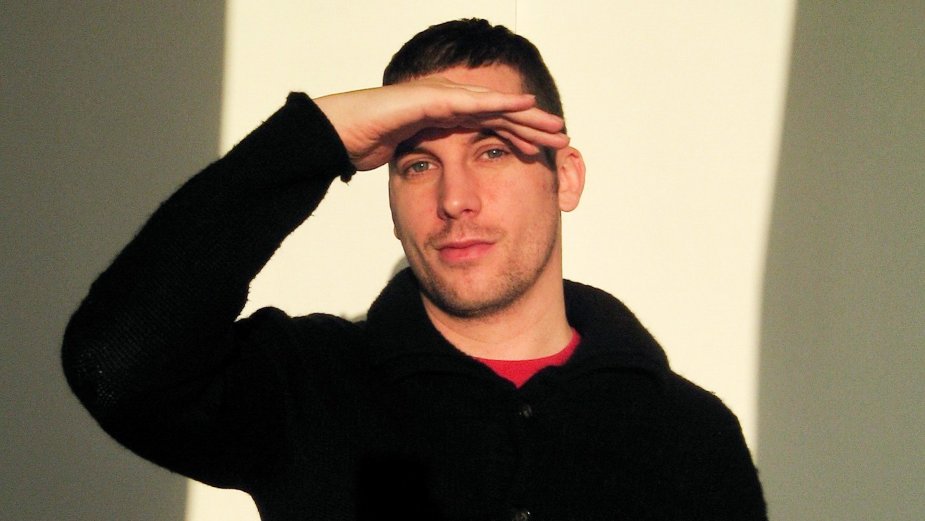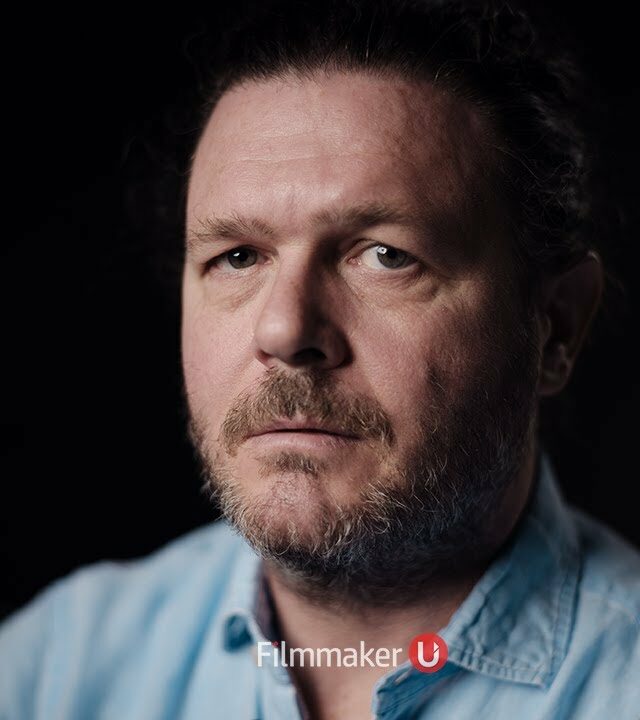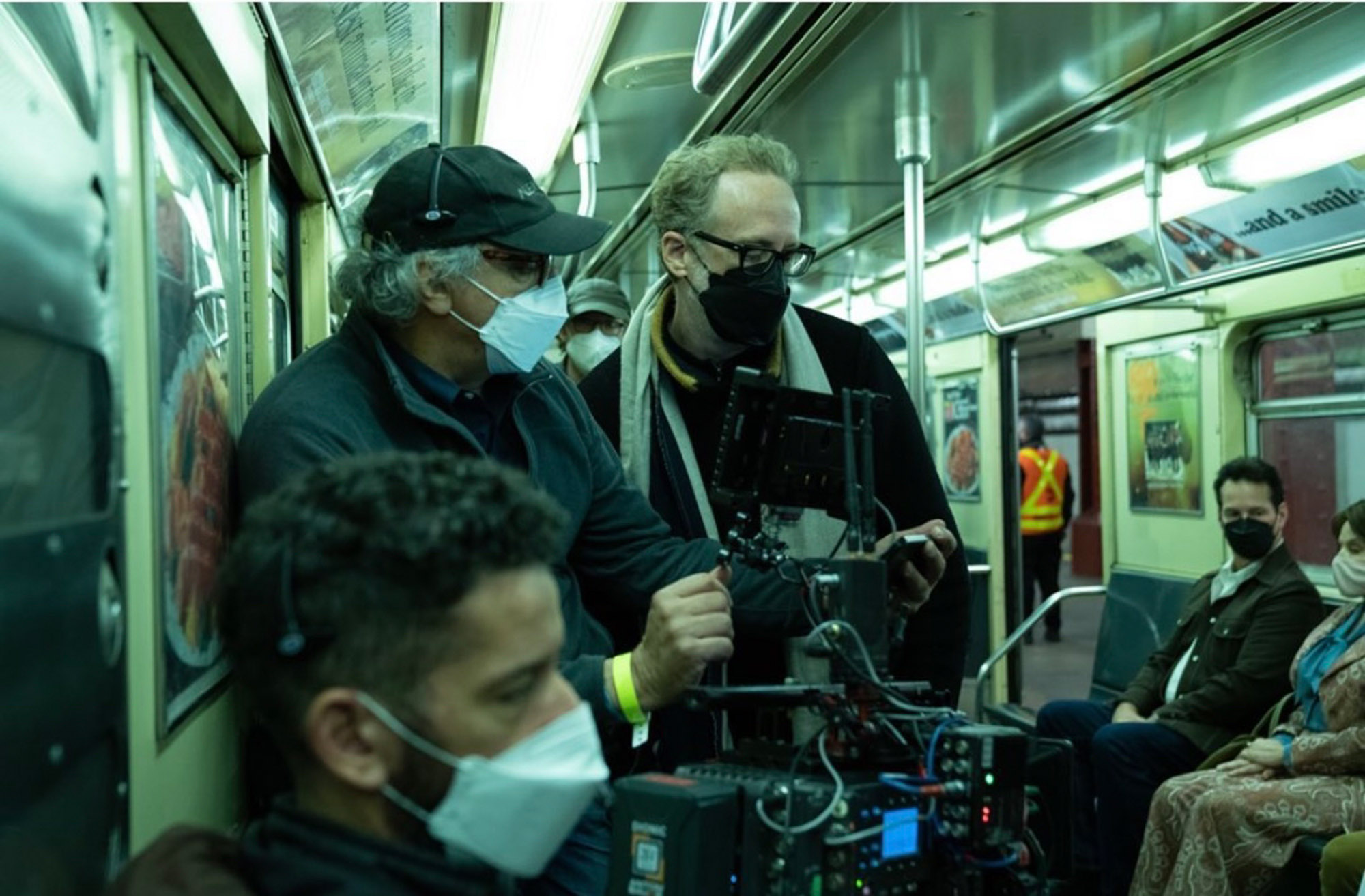My Biggest Lesson: Chris Mackenzie
The Harbor Picture Company's lead finishing artist on the importance of being interested

An accomplished VFX finishing artist, Chris Mackenzie has collaborated with some of the industry’s most revered directing talents on a host of award-winning feature and episodic projects including The Irishman, Midsommar, Marriage Story, Showtime’s Billions and Super Pumped: The Battle for Uber, Spike Lee's NYC EPICENTERS 9/11-2021½.
Be interested. That’s the biggest lesson I’ve learned. Be interested in your job but also, whenever possible, be interested in anything you do.
It took me a while to find a career. I did a lot of odd jobs - a lot of work that I didn’t want to do. I’m pretty sure that the younger me was a near perfect example of someone who just couldn’t find their way. For a long while, I had a belief that working hard and/or being in the right place at the right time would amount to some sort of success.
At the turn of the millennium - high-tech, entertainment, and the internet were all starting to mix. I knew I liked movies; I knew I liked tv; I knew I liked doing creative things and didn’t mind computers. I realised that a bunch of what I liked to do could now be combined and turned into a career. Finally, I had a salary, marketable skills, and I was doing something that I found interesting. I had found myself in the right place at the right time and for a while, I was working as hard as I could.
I don’t think I would call it a burnout, but after a few years, I got bored. I was no longer excited by the work I was doing, and I could sense that I was starting to lose direction. At the beginning, I felt like life had somehow put me on just the right path to find the ideal career. Quite suddenly, the work I had tried so hard to get became drudgery. I don’t exactly know how I wised up, but I made some good changes; I got a job at a different company. More importantly, however, I realised that I had to learn how to be interested in my job. I was confident that I was in the right profession, but I had to find a way to stay the course.
I started to think about a doctor friend of mine who claimed that they had never lost interest in their work or questioned their career decisions. While I started to jot down reasons to suspect what this doctor had said were untrue, I remembered my late uncle and his long career as a pilot.
At about the same age that I was working hard to find a job I liked, my late uncle was flying fighter jets. In our family photo album, there is a picture of him as a young man dressed in a flight suit. Uncle Mike was smiling and standing next to a sleek silver airplane. The 'One-Oh-Four' was my uncle’s name for that jet, and it was his humble brag that he was too tall to fly it. Our family lore says that Uncle Mike persevered and developed a slouch to fly his plane. It was a roll of his shoulders that fit himself to the curve canopy and over time it became permanent.
Flying a jet that travels at twice the speed of sound was, however, an occupation with an age limit. Even with his high level of determination, Uncle Mike had just a few years before his service was complete. I’m sure his experience piloting one of the fastest and highest-flying jets in the sky served him well for the rest of his career but, most of his flight hours were ultimately spent behind the controls of a commercial airliner.
The Uncle Mike I knew ferried passengers and their luggage between airports on domestic routes. My father and I would drive to the airport to pick him up. In the car, we’d talk about planes and his job as a pilot – I remember Uncle Mike being frustrated with the bureaucracy of the airlines but never complained about the flying itself. At one point, he even offered to help me become a licensed pilot and told me it was the best job in the world.
I also remember my uncle saying the plane he flew as a young man, the 'One-Oh Four' was also nicknamed 'The Flying Coffin' and this morbid designation always has stuck in my head. Recently, I did some research, and indeed in the Wikipedia entry for this aircraft, its safety record is one of the longest portions. The type of jet my uncle flew had unmatched performance but required constant attention from the pilot. A single careless manoeuvre could cause a stall, and control from a stall was very rarely recovered.
If I were a better writer, I could make a tighter analogy between the handling characteristics of this jet and the struggles I’ve felt avoiding a stall in my own career. At certain points, I have made careless manoeuvres and committed pilot errors. There have been times when a lack of attention or a lack of being interested might have been my finish.
By any comparison, the stakes were never as high for me. My uncle flew his supersonic plane into restless border zones at the height of the Cold War. I have an undo button on my keyboard and a seat that’s planted much closer to earth. Like my uncle, however, I do want to have a long career, and I reali'e that the best way to achieve that is to be interested in what I’m doing. I can only work so hard, and I think I’ve already been in all the right places at the right time. Some days feel “supersonic,” but there are also days where I feel like I’m piloting the slowest red eye across the country. I’ve come to realize that being interested is a learned skill and that if I can continue to maintain that skill I probably won’t stall. So, to sum it all up – my biggest lesson was realizing that I must be interested in what I do for my career to be sustainable, and my biggest challenge has been remembering that lesson.

